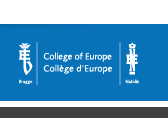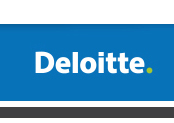






 |
ABOUT | PROGRAMME | SPEAKERS | WORKSHOPS | REGISTRATION | PREVIOUS EDITIONS | MEDIA | VENUE&INFO | CONTACTS |
WORKSHOPS
W1: Energy Policy - How to achieve European energy integration
Major European energy companies have called for the urgent need to tackle
the “perilous
situation facing the European energy sector” and implement appropriate
policy actions to address the seriousness of the current challenges facing
the sector. They argue that the current lack of visibility on energy
policies, coupled with ongoing regulatory uncertainty will ultimately lead
to an absence of investment into the energy sector and negatively impact
security of supply.
At the same time, the EU has outlined its 2030 framework for climate and
energy policies and its 2050 road map which seek to drive continued progress
towards a low carbon economy. Through these policy steps, the EU aims to
build a competitive and secure energy system that ensures affordable energy
for all consumers, increases the security of the EU’s energy supplies,
reduces our dependence on energy imports and creates new opportunities for
growth and jobs.
So at least on paper, there is consensus. But it’s not that straightforward.
This session will examine the changes at EU level, which are needed in order to
meet these targets. How can we achieve integration of the European energy
markets, energy mix and facilitate better coordination between member
states? What changes are needed in relation to market design and carbon
markets? What knock on impact may this have on the price of energy, security
of supply and R&D in promising technologies for example?
Deloitte will also discuss the findings of its pan-European comparative
study of the status of electricity market reform and outline its
recommendations for the pathway to European energy integration.
Chair: Veronique
Laurent, Partner and European Power Leader, Deloitte,
Slides
Speakers:
- Joost van Roost, President of ExxonMobil Benelux, Slides
- Federico Tarantini, DG ENERGY, Directorate Energy Policy
- Vera Brenzel, Head of EU Representative Office, E.ON AG, Slides
- Sami Andoura, European Energy Policy Chair, College of Europe & Senior Research Fellow, Notre Europe - Jacques Delors Institute
W2: Digital Economy - How to fulfil the potential of the digital economy in Europe
Communications technology is evolving
rapidly bringing an ever-growing range of products and services to
customers. Electronic communications networks and the digital services
provided over them are becoming increasingly embedded into people’s lives.
Services that were recently considered as luxuries are quickly becoming an
essential part of living and working.
This is creating a wide range of policy and regulatory challenges for
national and European institutions. The regulatory agenda has to evolve
quickly to be consistent with the rapid changes in technology and the
marketplace. The agenda is also expanding beyond the traditional confines of
the telecommunications industry, and driving change in other policy areas
such as trade, copyright, intellectual property, tax, privacy and security.
The Digital Agenda is therefore a high priority within Europe, not least
with the Juncker Commission.
The session will focus on the policy and regulatory priorities for the
digital services market. It will cover both the infrastructure, technology
and the services segments of the market and will particularly consider what
needs to be done to support the growth of the businesses market. What are
the critical regulatory obstacles facing the market as a whole? What do we
mean by a digital single market and what are the critical reforms that are
needed to achieve it? The session will go beyond the traditional
concentration on regulating networks and focus on how public policy can
support the digital ecosystem as a whole. It will consider the balance of
regulation between traditional network businesses, technology providers and
new entrants in the market who provide services “over the top”.
Chair: Mark
Williams, Partner, Corporate Finance, Economic Consulting, Deloitte
Speakers:
- Juhan Lepassaar, Head of Cabinet, Cabinet of Vice President Ansip, Digital Single Market
- Stephen Collins, Vice President Corporate Affairs, Microsoft EMEA
- Markus Reinisch, Group Public Policy Director, Global, Vodafone
- Simon Hampton, Director, Technology Policy Advocates
W3: Transatlantic Trade - How to reach mutually beneficial EU/U.S. regulatory convergence
Transatlantic trade negotiations constitute a very complex dossier
requiring high-level political decisions on a multitude of diverse and
extremely technical matters which are likely to impact every industry and
affect investors’ rights.
Differently from any previous trade agreement, the principal aim of TTIP is
not to dismantle border restrictions such as tariffs and quotas. Rather, it
seeks regulatory convergence. Harmonization and mutual recognition of
regulations and standards can lead to a substantial cut in red tape and
consequently it can have a significant impact on production and marketing
costs.
The main challenge for EU negotiators will probably be to strike a balance
between safeguarding consumers and facilitating access in new markets for EU
enterprises. Many questions in this respect are relevant for both business
and public opinion. Will regulatory convergence result in increased exports,
growth and jobs? Who is more likely to benefit from it? Will SMEs and
less-prosperous regions be affected negatively?
The transatlantic partnership will also include new rules on investor
rights. In this case as well, a balance has to be found. The introduction of
investor-state dispute resolution aims to encourage investment, without
weakening local regulations.
Lastly, there is concern about the impact of TTIP on non-members. Should we
expect positive spillovers thanks to the new regulatory framework or will
there be substantial trade diversion?
One thing is more likely. If the negotiations are successfully concluded,
they will set a new benchmark for international trade agreements and a
global reference for international production standards.
Chair: Christiane Cunningham,
EMEA Regulatory and Public Policy Partner, Deloitte
Speakers:
- Denis Redonnet, Head of the Trade Strategy Unit, DG TRADE, European Commission
- Jacques Pelkmans, Senior Research Fellow, CEPS & Visiting Professor, College of Europe, Slides
- Hylke Vandenbussche, Professor, KU Leuven
- Alain Berger, Senior Vice President for European Affairs, ALSTOM


